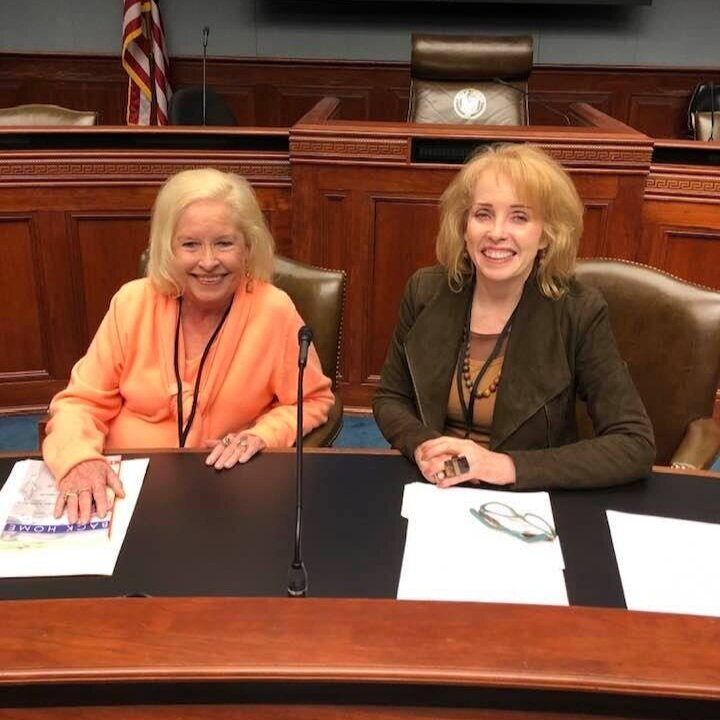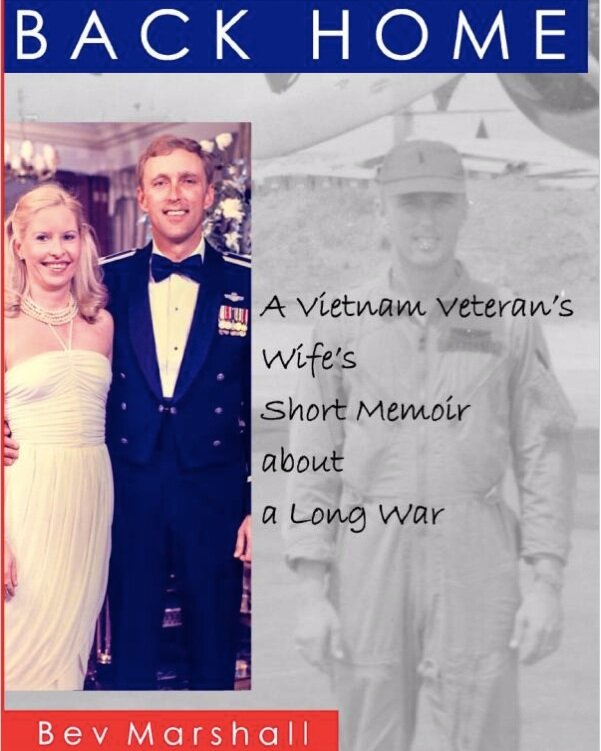On this Day in History: November 15, 1969. The Moratorium March on Washington. A Million Reasons to End the War. . . Or So We Thought.
/The First Time the Size of the Crowd on the DC Mall Really Mattered
On this day fifty years ago, the second phase of the hopeful Moratorium to End the War in Vietnam took place. Unlike the previous month’s event, it wasn’t a quiet series of strikes by students or others. It was to be a million marchers in Washington, D.C., right outside President Richard Nixon’s White House window. The portion of the divided country convinced it was time to stop this seemingly endless and pointless conflict was ebullient. We were confident that with numbers like these showing up, it would be impossible for the president to dismiss the will of the majority: the war had lost its objective; it was unwinnable; it was time to Bring the Troops Home NOW!
Like the first Moratorium that October, the march was to be inclusive of as many subsections of the country as possible—an unprecedentedly huge aggregate of voices all asking for the same thing. And, it was to be peaceful, to make a point without becoming who we were not, and without alienating those who’d like to join, but feared to in the shadow of the violence that began with the Democratic Convention in 1968. The Chicago Conspiracy Trial had just begun that September and was still going on. We were changing the image: There are so many of us; lots of us look like you; it’s safe to join us. You know we’re right.
We Had to Be There. And to Be Counted.
Young people were particularly activated and ended up comprising the majority of the marching crowd. The war affected them most, after all—they were the fuel for the new draft lottery, coming in just three weeks, that was to determine who would go to Vietnam at a time when that meant a death sentence.
College campuses, representing the largest concentration of draft-age men, mobilized. Across the country, buses and other transportation were arranged to bring flocks of students to the event. Preparations covered the scope of the guerilla marketing options of the day: posters were painted, banners made for display by marchers, armbands and pins created for every message out there, from the remaining vestiges of flower power, “War is hazardous for children and other living things,” to the clenched-fist yelp of the day, “Hell No, We Won’t Go.”
We had to be there, somehow, we told ourselves. The numbers were important. A million marchers! We had to be counted. That was the galvanizing cry—and so close to the December 1 lottery date that it was worth risking all. Like the main character in The Fourteenth of September, I was on a military scholarship, the only way I could afford to go to college. I was deep into plotting how to get out of it by this time, but I couldn’t risk losing it, which I surely would if I got caught traveling to Washington, thereby going AWOL (which I’d technically be, away from my “duty station” at school). But I felt certain this was a pivotal moment in history, and I had to be a part of it, or I’d never forgive myself.
And it was the most exciting thing to be happening so far in my teenage life: Genuine action, people from all over the country, a city I’d never been to. Above all, I was going to make a difference. It’s hard to describe how certain we were that we would be heard at last and that this would work. A million marchers! We’d stop the war that was eating up our generation. It was easy, Kool-Aid, and I drank it down like so many others in the guilelessness of late adolescence. After all, we were right: people were dying without purpose; the war was bad; it had to end. Who could quibble with that?
Even my mid-size school, Northern Illinois University, was going to send three buses to Washington. It would cost $40 a head, which was stiff for students in those days. I got such a secret kick out of using my army pay to finance my rebellion. I couldn’t tell anyone, but I’d know. I made my plans. I left my army ID in the only locked drawer in my dorm desk, joined in making dozens of PB&J sandwiches for the bus ride, and set out to change the world.
Off on a Fateful Adventure with a Million Marchers
It was a long night’s drive, and we arrived late, after the famous “March Against Death” that took place the night before Saturday’s big event. Thousands of people had walked in single file down Pennsylvania Avenue to the White House, each carrying a placard with the name of a dead American soldier, presaging the eventual form of the Vietnam Veterans Memorial Wall. The placards were placed in coffins, and we saw them lying in front of the Capitol Building as our bus pulled into the city and dropped us off.
We hastily joined the other marchers, lined up for the main event. We jumped around to stay warm in the bone-chilling November cold, none of us dressed for the weather. We’d been more concerned about the message of the imitation fatigues we were wearing under our protest buttons—olive drab and khaki jackets we’d picked up at the army surplus store in our campus hometown. We wanted to look the part. We waited. . . and waited, only to be ultimately frustrated when city officials stopped the march on the stroke of the three-hour parade permit time limit, despite the thousands of us who had not yet put one foot in front of the other to make our involvement official.
We swallowed our disappointment and followed the crowd down the Mall, amazed at the sheer numbers of people, a moving swarm of protestors filling up every space between the white buildings we’d heretofore only seen in pictures or on television: the Capitol, the National Gallery of Art, and ahead of us the grand obelisk of The National Monument. We met people from all over, from pacifists to anarchists, but mostly just kids like us, totally psyched that we’d choked the streets and shut down the capital of the United States. Rumor was we’d pulled off the biggest protest ever. Of course, this would end the war. How could it not?
We were tired, hungry, and on the hunt for bathrooms but also riding high, eagerly joining in singing along with those ahead of us, who in turn were singing along with performers we knew were ahead of them but we couldn’t possibly see or hear ourselves—Peter, Paul and Mary, Arlo Guthrie, Country Joe and the Fish.
When we filed onto the buses after only six hours in the city and headed back to campus, we were exhausted but elated. We’d been counted, we were sure. The war would end. We gave them a million reasons why. This is what it was to be a responsible citizen. This is what it was to join the long tradition of activism in our country. This is what it was to be an American.
Read the excerpt about the day from The Fourteenth of September.
“Young Marchers Ask Rapid Withdrawal from Vietnam,” The New York Times
Media coverage and access to information was so slow back then. There were many “no-news” hours between boarding the buses and arriving back on campus, leaving us blind and deaf to the national reaction to the March.
By the time we returned, the newspapers were out, but the number was wrong— they were saying only 250,000 people had been in Washington. That number didn’t make sense if you’d been there. No one could imagine how they’d arrived at it. Someone suggested it was possible they’d only counted the ones who actually marched before the permit ended. It was the only reasonable explanation. Or was it an intentional plot—purposeful misinformation to show that though we boasted of having a majority we could only deliver a fraction of it?
And then there was the devastating caption that told us Nixon hadn’t been looking at a million marchers from his window. . . he had been watching a football game.
Dreams dashed.
“It Remains the Largest Political Rally in the Nation’s History,” Time Magazine
The numbers were revised with time to 500,000, but the damage had been done. We’d been so excited; I’d personally risked so much, and we were dismissed. To Nixon, we were a few thousand kids versus his great silent majority. His contempt for the concerns of our entire generation oozed over us. There were tens of thousands of faces who’d traveled from across the country over which he presided, beckoning for his attention in the freezing cold and he hadn’t even looked up from the television screen, or so he boasted.
We learned much later that this march had been historic, that it had had an impact, that it had been significant in the sequence of resistance that eventually led to the end of the war. In retrospect, we’d been an important part of the story of our country. Today, we smile and feel proud to read the fifty-year-old news accounts.
But it sure didn’t feel like it at the time.
The war went on for another six years. Thousands more died. We felt the power we thought we had heading into the march begin to dissipate, sifting through our fingers. We were too young to know change was that hard, and would take that long. We thought we’d failed.
A few years later, that president, who finagled crowd numbers on the Mall, would become so cocky he’d push it to the point of breaking the law. He got his comeuppance with Watergate.
We didn’t think it could ever happen again. We didn’t imagine we were in the first cycle of the hamster wheel of history.
LATEST UPDATES & NEWS


















